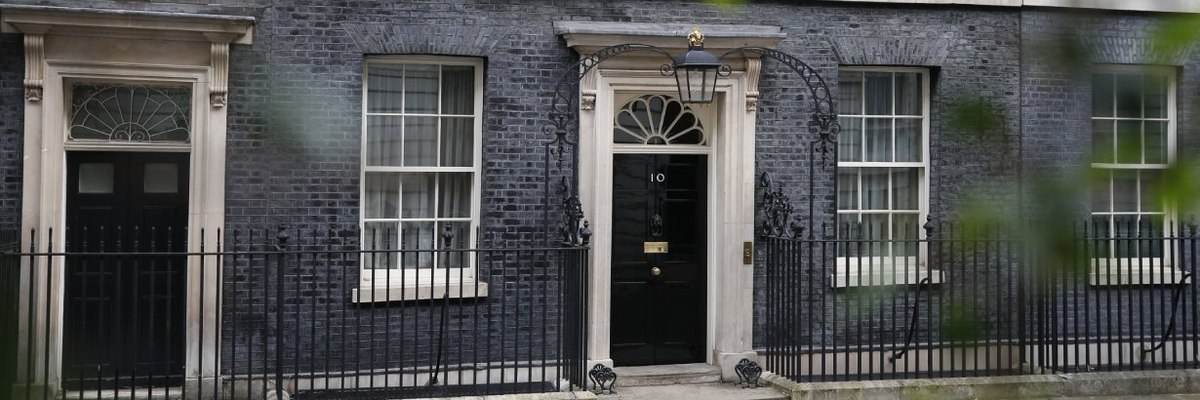The police call it an ‘insult’ and declare they have ‘lost confidence’ in the Home Secretary, Priti Patel. Teachers say it’s ‘a slap in the face’. And nurses have warned that they ‘will not take this lying down’. What they’re all talking about is their pay. Although health service workers are to get a 3% increase, three times what the government originally wanted to give them, almost everyone else is having their pay frozen. With inflation rising fast this will amount to a real pay cut for most. Everyone knows that dealing with the pandemic has put the government so much in debt that it can’t simply borrow lots more money to pay its wage bill. But should it instead raise more taxes to up the pay of its workers?
Despite this week’s outpouring of anger and defiance from public sector workers and their leaders, the annoucements of the new pay settlements can’t have come as a surprise. Back in November the government announced there would be a pay freeze this financial year right across the public sector, except for health workers and for those elsewhere who earned under £24,000 a year. At first ministers offered health workers an increase of just 1%, a figure thought so measly and insulting in the light of what health workers had contributed and had had to endure during the pandemic that they backed off. Now they’ve upped it to 3%. On Wednesday, the Health Secretary, Sajid Javid, said this was ‘in recognition of their extraordinary efforts’ fighting Covid. But Pat Cullen, the chief executive of the Royal College of Nursing, said the whole process had been ‘shambolic’, and that ‘the profession will not take this lying down. We will be consulting our members on what action they would like to take next’. She added that ‘with today’s decision, ministers have made it even harder to provide safe care for patients’.
As for the police and teachers, they think they too have made ‘extraordnary efforts’ in keeping the country going during Covid, but the reward for most of them is to have their pay frozen in simple money terms. Yet inflation is rising fast. Some Treasury estimates think it could reach 3.7%, meaning that the real value of their pay will be cut for almost all public sector workers, even including the health workers with their 3% nominal increase. It’s this real pay cut that explains the intensity of the protest.
For some, this real terms pay cut is nothing new. Experienced teachers, in particular, can feel hard done by. Although the Conservative manifesto at the 2019 pledged to raise the starting salary of teachers to £30,000 by September 2022 (now postponed to 2023), and even though substantial progress was made towards that goal last year, teachers who’ve been in the job longer have had much more of a raw deal, going back almost fifteen years. According to research carried out by the Institute for Fiscal Studies and published this week, ‘there have been large real terms falls in teacher pay over the last decade and more, particularly for more experienced teachers. In 2021 teacher pay levels remain about 8% lower in real terms than in 2007 just before the financial crisis. And they are still about 4-5% lower for less experienced teachers’.
One obvious consequence of cutting the real value of the pay of public sector workers is that it makes it harder to attract and retain public sector staff. The IFS report sees signs of falling retention rates in teaching and the NHS has been struggling to recruit nurses and other healthcare workers with indications that many existing workers are on the verge of leaving. That’s why Pat Cullen said that even a 3% pay increase threatened patient care.
The government’s defence of its public sector pay policy is that it is fair in relation to what has been happening to the private sector during the pandemic where, even though many jobs were protected by the furlough scheme and other measures, wages there have suffered and there is still the prospect of much greater unemployment when all the measures are lifted than in the public sector. And, it adds, it simply can’t afford to be more generous. The government’s books are in a deep, deep red and its priority must be to get its debt down over time and certainly not add to it by financing public sector pay on the never-never.
Be that as it may, extra borrowing is not the only way the government could finance higher pay in order to prevent its workers having their real remuneration cut or leaving the service. It could simply raise more taxes to pay higher wages. And for all its anti-higher-tax rhetoric and the pledges it has made in the past not to increase specific taxes, the government has not wholly turned its back on the idea of raising taxes to pay for what it considers essential expenditure. In the last week or so it has been reported that the Chancellor, Rishi Sunak, in cahoots with Mr Javid (his predecessor in the job) has twisted the Prime Minister’s arm and persuaded him that the government needs to raise an extra £10bn a year in taxation, ultimately to finance a sustainable system of social care (capping what individuals themselves have to pay to be looked after in their old age), but initially to pump extra money into the NHS to cover the cost of dealing with the huge backlog of treatment that has built up during the pandemic. Indeed it’s being speculated that the money to pay the 3% increase in health service wages will come from such a new tax.
But it’s not all been plain-sailing. Reports suggested the three ministers had agreed to raise the money by adding one percentage point on to the rate at which national insurance contributions are levied. But this has been widely criticised as wholly unfair, in particular because the burden would fall on younger workers and not at all on those already retired, many of whom are far more affluent; and also because NICs are a less progressive tax than income tax.
The government’s problem is to some extent one of its own making. The 2019 Tory manifesto pledged not to increase income tax or VAT, the two taxes from which most revenue is raised. There are, of course, other sources available to it, including cutting the tax allowances available to people in the higher tax brackets with regard to their penson contributions, or taxing property much more radically than it is at the moment. Both, however, would hit the base of the Conservative Party vote.
Some Tory MPs would say that their reluctance to raise taxes isn’t simply about keeping their voters happy in order to keep their own jobs. Theirs, they say, is both an ideological and practical objection to higher taxes. They point out that the overall tax burden in Britain is now higher than it has been since the 1960s after which it gradually became consensual that lowering taxes helped promote economic growth – ‘increasing the size of the cake’ as it was often put. They point to Margaret Thatcher’s gradual lowering of the tax burden (and it was gradual, despite her reputation for radicalism) as having contributed to the revival of the British economy and therefore to the ability of Tony Blair’s New Labour government to spend more on the public services.
As Boris Johnson passes the second anniversary of his becoming prime minister, few would be surprised if he broke promises he had previously made on not raising taxes, since making and breaking promises is now widely regarded as a fundamental part of his make-up. The more interesting question is whether or not he should increase taxes in order, among other things, to stop the real value of the pay of public sector workers from continuing to fall.
What do you think?
Let us know.









